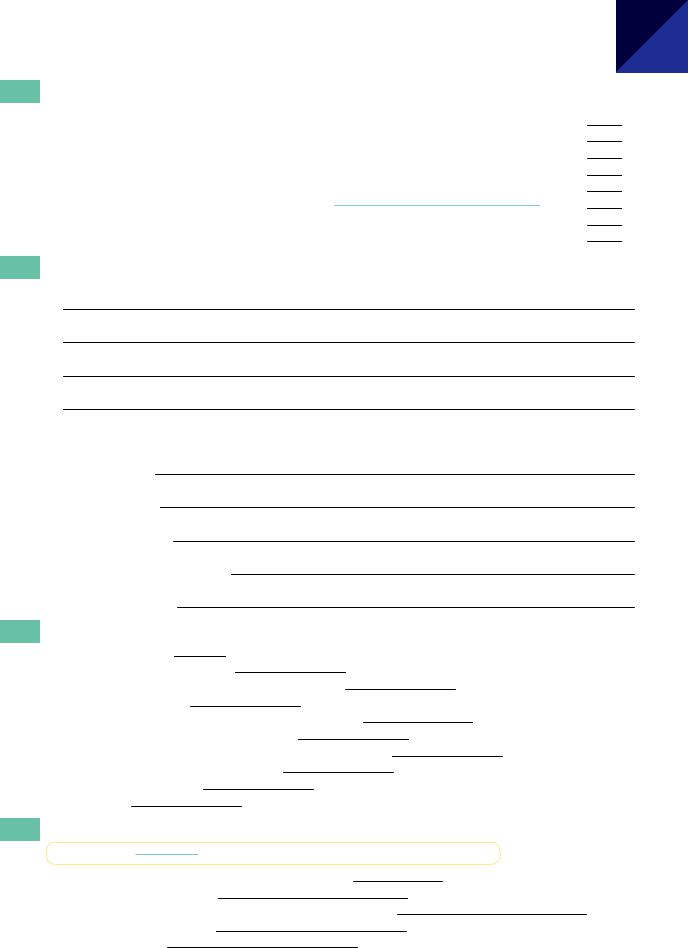
- •Contents
- •Thanks
- •To the student
- •To the teacher
- •3 Present continuous and present simple 1 (I am doing and I do)
- •10 Present perfect continuous and simple (I have been doing and I have done)
- •11 how long have you (been) … ?
- •12 for and since when … ? and how long … ?
- •13 Present perfect and past 1 (I have done and I did)
- •14 Present perfect and past 2 (I have done and I did)
- •15 Past perfect (I had done)
- •16 Past perfect continuous (I had been doing)
- •17 have and have got
- •18 used to (do)
- •19 Present tenses (I am doing / I do) for the future
- •20 I’m going to (do)
- •21 will and shall 1
- •22 will and shall 2
- •23 I will and I’m going to
- •24 will be doing and will have done
- •26 can, could and (be) able to
- •27 could (do) and could have (done)
- •28 must and can’t
- •29 may and might 1
- •30 may and might 2
- •31 have to and must
- •32 must mustn’t needn’t
- •33 should 1
- •34 should 2
- •35 I’d better … it’s time …
- •36 would
- •39 if I knew … I wish I knew …
- •40 if I had known … I wish I had known …
- •41 wish
- •42 Passive 1 (is done / was done)
- •43 Passive 2 (be done / been done / being done)
- •44 Passive 3
- •45 it is said that … he is said to … he is supposed to …
- •46 have something done
- •47 Reported speech 1 (he said that …)
- •48 Reported speech 2
- •49 Questions 1
- •52 Question tags (do you? isn’t it? etc.)
- •53 Verb + -ing (enjoy doing / stop doing etc.)
- •54 Verb + to … (decide to … / forget to … etc.)
- •55 Verb (+ object) + to … (I want you to …)
- •56 Verb + -ing or to … 1 (remember, regret etc.)
- •57 Verb + -ing or to … 2 (try, need, help)
- •58 Verb + -ing or to … 3 (like / would like etc.)
- •59 prefer and would rather
- •60 Preposition (in/for/about etc.) + -ing
- •61 be/get used to … (I’m used to …)
- •63 there’s no point in -ing, it’s worth -ing etc.
- •64 to … , for … and so that …
- •65 Adjective + to …
- •66 to … (afraid to do) and preposition + -ing (afraid of -ing)
- •67 see somebody do and see somebody doing
- •68 -ing clauses (He hurt his knee playing football.)
- •69 Countable and uncountable 1
- •70 Countable and uncountable 2
- •71 Countable nouns with a/an and some
- •74 the 2 (school / the school etc.)
- •75 the 3 (children / the children)
- •77 Names with and without the 1
- •78 Names with and without the 2
- •79 Singular and plural
- •80 Noun + noun (a bus driver / a headache)
- •81 -’s (your sister’s name) and of … (the name of the book)
- •82 myself/yourself/themselves etc.
- •83 a friend of mine my own house on my own / by myself
- •84 there … and it …
- •85 some and any
- •87 much, many, little, few, a lot, plenty
- •90 all every whole
- •91 each and every
- •92 Relative clauses 1: clauses with who/that/which
- •94 Relative clauses 3: whose/whom/where
- •95 Relative clauses 4: extra information clauses (1)
- •96 Relative clauses 5: extra information clauses (2)
- •97 -ing and -ed clauses (the woman talking to Tom, the boy injured in the accident)
- •98 Adjectives ending in -ing and -ed (boring/bored etc.)
- •99 Adjectives: a nice new house, you look tired
- •100 Adjectives and adverbs 1 (quick/quickly)
- •102 so and such
- •104 quite, pretty, rather and fairly
- •105 Comparative 1 (cheaper, more expensive etc.)
- •106 Comparative 2 (much better / any better etc.)
- •107 Comparative 3 (as … as / than)
- •108 Superlative (the longest / the most enjoyable etc.)
- •109 Word order 1: verb + object; place and time
- •110 Word order 2: adverbs with the verb
- •111 still any more yet already
- •112 even
- •114 in case
- •116 as (as I walked … / as I was … etc.)
- •117 like and as
- •119 during for while
- •121 at/on/in (time)
- •122 on time and in time at the end and in the end
- •123 in/at/on (position) 1
- •124 in/at/on (position) 2
- •125 in/at/on (position) 3
- •126 to, at, in and into
- •127 in/on/at (other uses)
- •129 Noun + preposition (reason for, cause of etc.)
- •130 Adjective + preposition 1
- •131 Adjective + preposition 2
- •132 Verb + preposition 1 to and at
- •134 Verb + preposition 3 about and of
- •135 Verb + preposition 4 of/for/from/on
- •136 Verb + preposition 5 in/into/with/to/on
- •137 Phrasal verbs 1 Introduction
- •138 Phrasal verbs 2 in/out
- •139 Phrasal verbs 3 out
- •142 Phrasal verbs 6 up/down
- •143 Phrasal verbs 7 up (1)
- •144 Phrasal verbs 8 up (2)
- •145 Phrasal verbs 9 away/back
- •Additional exercises
- •Study guide
- •Key to Exercises
- •Key to Additional exercises (see page 302)
- •Key to Study guide
- •Index

Unit
63 there’s no point in -ing, it’s worth -ing etc.
AWe say: there’s no point in
it’s no use doing something it’s no good
There’s no point in having a car if you never use it.
There was no point in waiting any longer, so we let.
It’s no use worrying about what happened. There’s nothing you can do about it.
It’s no good trying to persuade me. You won’t succeed.
We say ‘no point in …’ but ‘the point of …’ :
|
|
There’s no point in having a car. |
|||||||||||
|
|
What’s the point of having a car if you never use it? |
|||||||||||
|
|
|
|
|
|
|
|
|
|
|
|
|
|
B |
We say: |
|
it’s worth |
doing something |
|
|
|
||||||
|
|
|
it’s not worth |
|
|
|
|||||||
|
|
|
|
|
|
|
|
|
|
|
|
||
|
|
It’s a nice town. It’s worth spending a few days there. |
|||||||||||
|
|
Our flight was very early in the morning, so it wasn’t worth going to bed. |
|||||||||||
|
You can say that something is worth it or not worth it: |
||||||||||||
|
|
You should spend a couple of days here. It’s worth it. |
|||||||||||
|
|
We didn’t go to bed. It wasn’t worth it. |
|||||||||||
|
You can also say that something is worth doing, a movie is worth seeing etc. : |
||||||||||||
|
|
It’s a great movie. It’s worth seeing. |
|||||||||||
|
|
Thieves broke into the house, but didn’t take anything. There was nothing worth stealing. |
|||||||||||
|
|
It’s an interesting idea. It’s worth thinking about. |
|||||||||||
|
|
|
|
|
|
|
|
|
|
|
|
|
|
C |
We say: |
|
|
|
|
trouble |
|
|
|
|
|
||
|
|
|
have |
|
dificulty |
|
doing something |
|
|||||
|
|
|
|
|
a problem |
|
|
|
|
|
|||
|
|
|
|
|
|
|
|
|
|
||||
|
|
I had no trouble finding a place to stay. (not trouble to find) |
|||||||||||
|
|
Did you have a problem getting a visa? |
|||||||||||
|
|
People sometimes have dificulty reading my writing. |
|||||||||||
|
|
|
|
|
|
|
|
|
|
|
|
|
|
D |
We say: |
|
spend |
|
(time) |
|
doing something |
|
|
||||
|
|
|
waste |
|
|
|
|
||||||
|
|
|
|
|
|
|
|
|
|
|
|
||
|
|
|
|
|
|
|
|||||||
|
|
He spent hours trying to repair the clock. |
|||||||||||
|
|
I waste a lot of time doing nothing. |
|||||||||||
|
We also say ‘(be) busy doing something’: |
||||||||||||
|
|
She said she couldn’t meet me. She was too busy doing other things. |
|||||||||||
EWe use go -ing for sports and other activities. For example:
go sailing |
go swimming |
go fishing |
go riding |
go hiking |
go surfing |
go scuba diving |
go skiing |
go jogging |
go camping |
How oten do you go swimming?
We went skiing last year.
Tom isn’t here. He’s gone shopping.
I’ve never been sailing.
126 |
gone and been … Unit 7B |

Exercises
63.1 Which goes with which?
1 |
It’s a nice town. |
|
a |
I don’t believe you’re sorry. |
1 |
f |
2 |
It’s an interesting idea. |
|
b |
We’ll never find him. |
2 |
|
3 |
It’s no use standing here talking. |
|
c |
It’s not worth getting a taxi. |
3 |
|
4 |
It’s not important. |
|
d |
We have to do something. |
4 |
|
5 |
There’s no point in looking for him. |
|
e |
He won’t change his opinion. |
5 |
|
6 |
It’s no good apologising to me. |
|
f |
It’s worth spending a few days here. |
6 |
|
7 |
It’s not worth arguing with him. |
|
g |
It’s not worth worrying about. |
7 |
|
8 |
The hotel is a short walk from here. |
|
h |
It’s worth considering. |
8 |
|
|
|
|
|
|
|
|
63.2 Write sentences beginning There’s no point … .
1 Why have a car if you never use it?
There’s no point in having a car if you never use it.
2 Why work if you don’t need money?
3 Don’t try to study if you feel tired.
4 Why hurry if you have plenty of time?
Unit
63
63.3 |
Complete the sentences. |
|
|
1 |
I managed to get a visa, but it was dificult. |
|
|
|
|
I had a problem getting a visa |
. |
2 |
I find it hard to remember people’s names. |
|
|
|
|
I have a problem |
. |
3 |
Lucy found a job easily. It wasn’t a problem. |
|
|
|
|
She had no trouble |
. |
4 |
It will be easy to get a ticket for the game. |
|
|
|
|
You won’t have any problems |
. |
5 |
It was easy for us to understand one another. |
|
|
|
|
We had no dificulty |
. |
63.4 Complete the sentences. Use only one word each time.
1 |
I waste a lot of time doing nothing. |
|
|
2 |
How much time do you spend |
to and from work every day? |
|
3 |
Karen is going on holiday tomorrow, so she’s busy |
her things ready. |
|
4 |
I waste too much time |
TV. |
|
5 |
There was a beautiful view from the hill. It was worth |
to the top. |
|
6 |
We need to stay calm. There’s no point in |
angry. |
|
7 |
Amy is learning to play the guitar. She spends a lot of time |
. |
|
8 |
Gary is enjoying his new job. He’s busy |
on a new project. |
|
9 |
I decided it wasn’t worth |
for the job. I had no chance of getting it. |
|
10 |
It’s no good |
to escape. You won’t be able to get out of here. |
|
63.5 Complete these sentences. Choose from the following and put the verb in the correct form.
|
go riding |
go sailing |
go shopping |
go skiing |
go swimming |
1 |
Ben lives by the sea and he’s got a boat, so he oten goes |
sailing . |
|||
2 |
It was a very hot day, so we |
|
|
in the lake. |
|
3 |
There’s plenty of snow in the mountains, so we’ll be able to |
. |
|||
4 |
Helen has two horses. She |
|
|
regularly. |
|
5 |
Dan isn’t here. He |
|
. There were a few things he needed to buy. |
||
Additional exercises 27–28 (pages 318–19) |
127 |

Unit
64 to … , for … and so that …
AWe say:
I called the restaurant to reserve a table.
What do you need to make bread?
We shouted to warn everybody of the danger.
This letter is to confirm the decisions we made at our meeting last week.
The president has a team of bodyguards to protect him.
In these examples to … (to reserve … / to make … etc.) tells us the purpose of something: why somebody does something, has something, needs something etc., or why something exists.
BWe say ‘a place to park’, ‘something to eat’, ‘work to do’ etc. :
It’s hard to find a place to park in the city centre. (= a place where you can park)
Would you like something to eat? (= something that you can eat)
Do you have much work to do? (= work that you must do)
Sometimes there is a preposition (on, with etc.) ater the verb:
Is there a chair to sit on? (= a chair that I can sit on)
I get lonely if there’s nobody to talk to.
I need something to open this bottle with.
We also say money/time/chance/opportunity/energy/courage (etc.) to do something:
They gave us money to buy food.
Do you have much opportunity to practise your English?
I need a few days to think about your proposal.
C |
|
Compare for … and to … |
|
|
|
|
|
||
|
|
for + noun |
|
to + verb |
|
|
We stopped for petrol. |
|
We stopped to get petrol. |
|
|
I had to run for the bus. |
|
I had to run to catch the bus. |
|
|
|
|
|
|
|
|
|
|
You can say ‘for somebody to do something’:
There weren’t any chairs for us to sit on, so we sat on the floor.
We use for (do)ing to say what something is used for:
This brush is for washing the dishes.
But we do not use for -ing to say why somebody does something:
I went into the kitchen to wash the dishes. (not for washing)
You can use What … for? to ask about purpose:
What is this switch for? (= what is it used for?)
What did you do that for? (= why did you do that?)
Dso that
We use so that (not to …) especially with can/could and will/would:
She’s learning English so that she can study in Canada.
We moved to London so that we could see our friends more oten. I hurried so that I wouldn’t be late.
(= because I didn’t want to be late)
You can leave out that. So you can say:
I hurried so that I wouldn’t be late. or I hurried so I wouldn’t be late.
128

Exercises
64.1 Choose from Box A and Box B to make sentences with to … .
|
A |
1 |
I shouted |
B |
|
I wanted to be nearer my friends |
|
|
|
2 |
I opened the box |
|
|
I wanted someone to help me with my work |
|
|
|
3 |
I moved to a new apartment |
|
|
I wanted to report the accident |
|
|
|
4 |
I couldn’t find a knife |
|
|
I wanted to warn people of the danger |
|
|
|
5 |
I called the police |
|
|
I wanted to see what was in it |
|
|
|
6 |
I called the hotel |
|
|
I wanted to chop the onions |
|
|
|
7 |
I employed an assistant |
|
|
I wanted to find out if they had any rooms free |
|
|
|
|
|
|
|
|
|
1 |
I shouted to warn people of the danger. |
|
|||||
2 |
I opened the box |
|
|
|
|
||
3 |
I |
|
|
|
|
|
|
4 |
|
|
|
|
|
|
|
5 |
|
|
|
|
|
|
|
6 |
|
|
|
|
|
|
|
7 |
|
|
|
|
|
|
|
|
|
||||||
64.2 |
Complete these sentences using to + a suitable verb. |
|
|||||
1 |
The president has a team of bodyguards |
|
to protect him. |
|
|||
2 |
I don’t have enough time |
|
|
all the things I have to do. |
|||
3 |
I came home by taxi. I didn’t have the energy |
. |
|||||
4 |
Would you like something |
|
|
? Cofee? Tea? |
|
||
5 |
Can you give me a bag |
|
|
these things in? |
|
||
6 |
There will be a meeting next week |
|
|
the problem. |
|||
7 |
Do you need a visa |
|
|
to the United States? |
|
||
8 |
I saw Helen at the party, but I didn’t have a chance |
to her. |
|||||
9 |
I need some new clothes. I don’t have anything nice |
. |
|||||
10 |
They’ve passed their exams. They’re going to have a party |
. |
|||||
11 |
I can’t do all this work alone. I need somebody |
me. |
|||||
12 |
Why are you so scared? There’s nothing |
|
afraid of. |
||||
64.3 Put in to or for.
1 |
We stopped for |
petrol. |
5 |
Can you lend me money |
a taxi? |
|
2 |
We’ll need time |
make a decision. |
6 |
Do you wear glasses |
reading? |
|
3 |
I went to the dentist |
a check-up. |
7 |
I put on my glasses |
|
read the letter. |
4 |
He’s very old. He needs somebody |
8 |
I wish we had a garden |
the |
||
|
take care of him. |
|
|
children |
play in. |
|
64.4 Make one sentence from two, using so that.
1 I hurried. I didn’t want to be late.
I hurried so that I wouldn’t be late.
2I wore warm clothes. I didn’t want to get cold. I wore warm clothes
3I gave Mark my phone number. I wanted him to be able to contact me. I gave Mark my phone number
4 We spoke very quietly. We didn’t want anybody else to hear us. We spoke very quietly nobody else
5Please arrive early. We want to be able to start the meeting on time. Please arrive early
6We made a list of things to do. We didn’t want to forget anything. We made a list of things to do
7I slowed down. I wanted the car behind me to be able to overtake. I slowed down
Unit
64
129
